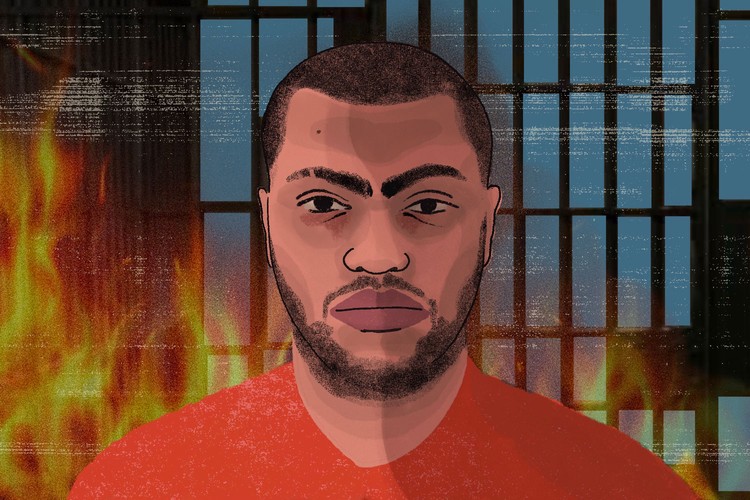
15 March 2024
Illustration of Thabo Bester by Lisa Nelson
Facebook rapist Thabo Bester and awaiting trial prisoner Nandipha Magudumana have failed in their 11th-hour bid to stop the broadcast of a four-part Showmax documentary Tracking Thabo Bester.
Johannesburg High Court Judge Stuart Wilson ruled on Friday that they had not shown that their fair trial rights would be prejudiced by the documentary.
This means the first two episodes will be shown on the online screening platform from 15 March.
Showmax had initially intended to release the show at 2am but rescheduled until 4pm while the matter was being argued in court. Bester and Magudumana brought urgent court applications, claiming their rights, including their rights to fair trials, were at stake.
In her affidavit, Magudumana said: “I am not against the respondents broadcasting the documentary. In fact, I am very much interested in it and will watch it when released and/or broadcasted. However, I am against the documentary being broadcasted before I have seen it, more specifically before the end of my trial as I believe it will have an impact on my trial and the subsequent result.”
She sought an order compelling Showmax to give her a copy of the documentary so that she and her lawyer could view it within 30 days “and institute such proceedings as necessary”.
Bester sought a similar interdict against broadcasting the documentary until he had a reasonable opportunity to provide commentary “on personal particulars and details as it pertains to myself personally, my life and relationships and third parties”.
“It is unfair that I should have to fight a trial in court and a public trial which influences my treatment and attitudes toward me, before I have even had an opportunity to respond. This is especially true because the sources of the documentary will form the state’s evidence in the trial yet to be determined,” Bester argued in his affidavit.
In his affidavit opposing the application, Multichoice General Counsel Steven Budlender said the documentary “contains no new facts” but had taken existing and reported on content and thematically organised it into a four part series.
The documentary was based on “notorious facts already in the public domain”, he said.
However, Bester and Magudumana said, in their affidavits, that Magudumana’s brother, Nkosinathi Sekeleni, had been interviewed, and he was witness 58 on the State’s list in the criminal trial.
Arguments in the matter were brief and Judge Wilson gave an ex tempore (spoken) ruling, noting that it was 13:35 pm and the broadcast was scheduled for 4pm.
He said neither applicant had shown that the broadcast would affect the fairness of their trials.
Earlier, while hearing argument, he noted that even Sekeleni’s evidence would not be impacted by the documentary.
“The cross examination is writing itself before my very eyes. If he tells a story (in the documentary) which is substantially divergent from what he says in court, it just makes him a bad witness. I don’t see how that impairs the administration of justice?”
In his ruling, he said he was bound by the decision of the Supreme Court of Appeal (SCA) in the NPA’s application against eTV regarding a documentary pertaining to the Dina Rodrigues prosecution.
That SCA had ruled that the test for any pre-publication interdict was that the publication would cause substantial harm to the administration of justice and that the risk was real.
All that Bester and Magudumana had shown was “generalised anxiety” that the documentary will talk about them, and that will in some way affect their interests.
“Reading the applicants’ papers, I find almost nothing that even rises to conjecture or speculation,” Judge Wilson said, dismissing the applications.
He said each party must pay its own costs, noting that Bester and Magudumana are both incarcerated and had pursued “a bona fide, if mistaken understanding of what their constitutional rights entitled them to”.
“Whatever they have done, or what could be said about their conduct or character, the doors of the court are open to everyone,” he said.